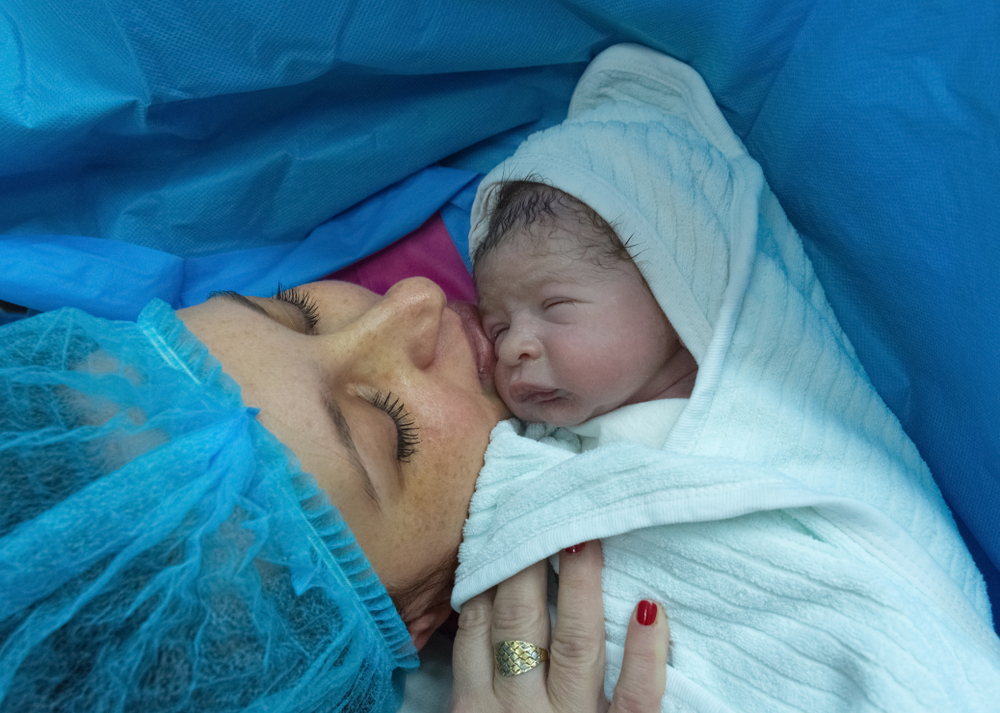Breastfeeding
13 Special Health Conditions that Affect Breastfeeding

Some babies are born with a special health situation that may interfere with or make breastfeeding more difficult.
However, in some situations, breastfeeding is still the best for the baby to thrive, such as:
-
Sick baby
-
Baby under 6 months
- In case of diarrhea or fever, the mother should exclusively breastfeed the infant to avoid dehydration or malnutrition
- Breast milk will help babies to recover quickly due to its valuable nutritional and immunological components
- In babies with severe diarrhea and have signs of dehydration and should receive ORS, breastfeeding should be continued in addition to ORS
-
A baby older than 6 months
- If the baby has diarrhea or fever, the baby should be frequently breastfed to avoid dehydration or malnutrition and offered bland food even if the baby is not hungry
- If ORS should be given, continue breastfeeding along with ORS
-
Sick mother
-
Mothers who suffer from common illness need to rest and drink fluids to help recover and should continue breastfeeding
-
If not improved she should consult a doctor and say that she is breastfeeding
-
Cesarean section
After cesarean section, breastfeeding may delay due to the following factors:
-
Painful incision which needs more time for recovery and more days of stay at the hospital
-
Painkillers may make the mother drowsy and unable to take care of her baby
-
Sleepy baby due to the effect of maternal anesthesia
-
Separation of mother or baby
-
Mother fears from the passage of post-operative medications the baby through breast milk
-
Lack of proper support
With proper help and support mothers can breastfeed soon after the cesarean section
-
Premature baby
-
A mother needs support for proper positioning and latching
-
Premature babies, breastfeeding is considered as a part of treatment
-
If direct breastfeeding is not possible, expressed milk can be stored and given when needed
-
Mothers should be assisted in milk expression or pump use especially for new mothers
-
If the baby sleeps for long periods, he/she should be unwrapped, change the diaper and hold vertical to encourage awaking
-
The mother should observe baby’s sleep-wake cycle and breastfeed during the alert states
-
Jaundice
-
Jaundice is common and occurs in 50 – 70% of all newborns.
-
It is a condition that is characterized by yellowish discoloration of the skin and eyes.
-
All babies are born with extra red blood cells that break down to be eliminated from the body.
-
Bilirubin, a yellow pigment is a product of breaking down the red blood cells in the blood.
-
Sometimes infants have to be temporarily separated from the mother to receive special treatment with phototherapy.
-
Some pediatricians discourage breastfeeding and recommend supplements or other fluids to be given to the baby. However, the American Academy of Pediatrics breastfeeding in jaundiced babies and suggests continuing frequent breastfeeding, even during treatment.
-
Breastfeeding should be increased to 8 – 12 times a day to increase bowel movement and remove more bilirubin from the body
-
If supplementation is recommended, the mother can express breast milk and give to the baby using a cup or spoon feeding
-
Twins
-
Success in breastfeeding a twins does not depend on milk supply but on time and support of the family to the mother
-
Milk supply is offer and demand, the more babies breastfeed, the more milk is produced
-
The mother can exclusively breastfeed twins or triples
-
Separation
-
The mother should express or pump breast milk and store it during separation
-
Baby can use the previously expressed and stored milk when needed
-
The mother should breastfeed frequently when at home with the baby
-
If it is possible to have the baby at the work (nursery), the mother should breastfeed frequently
-
Crying baby
-
A crying baby is a common reason for a mother to give formula and consequently stop breastfeeding early.
-
Many mothers start foods or fluids because they think that their babies are hungry or do not have enough milk
-
Actually, these foods do not reduce crying but may make the baby cries more
Reasons why babies cry includes:
-
Discomfort (dirty, cold, hot)
-
Tiredness (too many visitors)
-
Illness or pain (changed pattern of crying)
-
Hunger (not getting enough milk, growth spurt)
-
Mother's food (not a specific food, sometimes cow protein)
-
Mother's medication (caffeine, cigarettes, other drugs)
-
Colic (ways to carry and comfort the crying baby)
-
Increased baby needs
-
Pregnancy
-
Mother can continue breastfeeding during pregnancy if she wishes to, and if she has no history of complications in previous or current pregnancy
-
During colostrum production, the baby may have a loose stool for a few days
-
Sometimes babies wean themselves due to reduced supply or changes in breast milk taste
-
Oral abnormalities of the infant
Oral cavity abnormalities may contribute to breastfeeding problems. A mother of a baby with oral malformation like tongue tie, lip tie, cleft lip and/or cleft palate or high arched palate can breastfeed if supported by a professional assistance.
-
Fasting in Ramadan
-
Fasting for more than 20 hours can reduce milk supply
-
The mother should have enough meals and fluids the night before fasting day
-
Mothers are allowed to break their fasting if it affects their supply, breastfeeding is of higher priority
-
Stress
-
Milk supply can be reduced by stress
-
Components are not affected nor soiled
-
Try to reduce stress by distraction and have lots of fluids before breastfeeding
-
Medications
-
Most medications were found to pass breast milk
-
Almost all medications are found in only small amounts in human milk, usually less than 1% of the maternal dose
-
Very few medications are contraindicated during breastfeeding
-
Some medications can be given if necessary with baby observation taking into account the lowest possible dose













